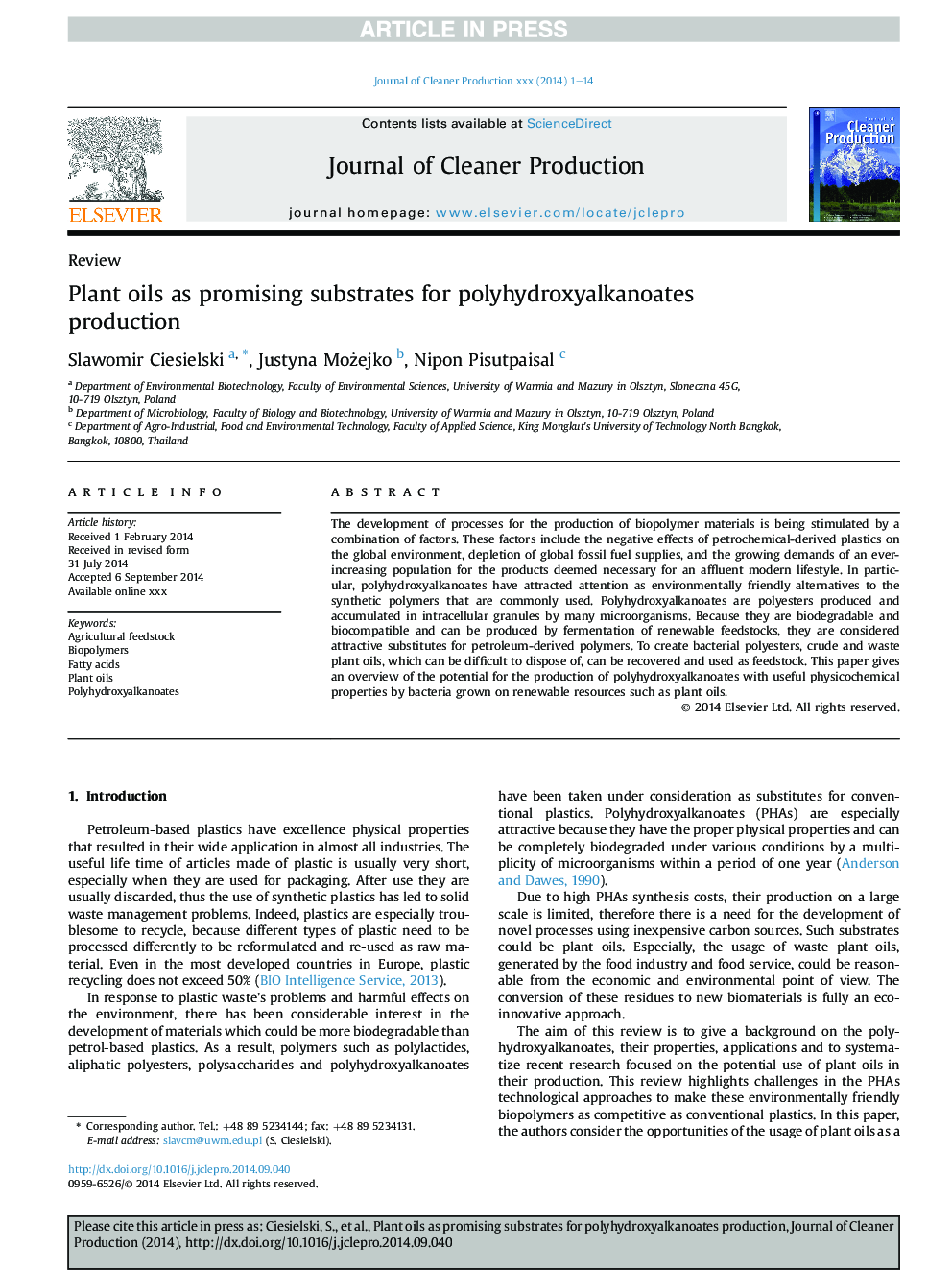| Article ID | Journal | Published Year | Pages | File Type |
|---|---|---|---|---|
| 8103237 | Journal of Cleaner Production | 2015 | 14 Pages |
Abstract
The development of processes for the production of biopolymer materials is being stimulated by a combination of factors. These factors include the negative effects of petrochemical-derived plastics on the global environment, depletion of global fossil fuel supplies, and the growing demands of an ever-increasing population for the products deemed necessary for an affluent modern lifestyle. In particular, polyhydroxyalkanoates have attracted attention as environmentally friendly alternatives to the synthetic polymers that are commonly used. Polyhydroxyalkanoates are polyesters produced and accumulated in intracellular granules by many microorganisms. Because they are biodegradable and biocompatible and can be produced by fermentation of renewable feedstocks, they are considered attractive substitutes for petroleum-derived polymers. To create bacterial polyesters, crude and waste plant oils, which can be difficult to dispose of, can be recovered and used as feedstock. This paper gives an overview of the potential for the production of polyhydroxyalkanoates with useful physicochemical properties by bacteria grown on renewable resources such as plant oils.
Related Topics
Physical Sciences and Engineering
Energy
Renewable Energy, Sustainability and the Environment
Authors
Slawomir Ciesielski, Justyna Możejko, Nipon Pisutpaisal,
